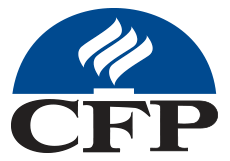
How To Talk With Your Family About Wealth
For a variety of reasons, Americans tend to be reluctant to discuss the specifics of their wealth – especially with adult children. Maybe these kinds of conversations remind us that we won’t always be self-sufficient, and one day might need to rely on younger family members for care. Maybe it’s a fear these discussions could damage family relationships when the topic turns to how and which assets are passed on, or that the prospect of future wealth could disincentivize future generations. Whatever the reason, these conversations are critical if you want to minimize confusion and hurt feelings, ensure your loved ones are cared for and pass on a legacy.
Why Family Discussions Around Wealth Are So Important
If you’re not used to having these kinds of conversations, talking with your adult children about your finances might feel awkward, like you’re risking alienating your loved ones. While the discomfort might be real, there are several good reasons to not let it interfere with these discussions.
- To protect your family’s financial future. Arguably the most fundamental reason to have open discussions about family wealth is to preserve it. According to the Institute for Preparing Heirs, 70% of families lose control of their assets by the third generation. While this decrease in wealth can be due to multiple factors, such as estate planning errors or underperforming investments, it’s most tied to a lack of readiness for inheritance and poor communication and trust among family members.
- To prevent misunderstanding and conflict. As anyone who has served in estate planning can tell you, the division and distribution of assets is not to be taken lightly – the details of who-gets-what might seem trivial, but it’s been known to break families apart. Conversations now, when you can have in-depth discussions surrounding your wishes and the rationale behind them, can prevent highly charged animosity down the road.
- To prepare for unanticipated health emergencies. While sometimes the physical – and cognitive – decline that accompanies aging is smooth and gradual, in many cases it will happen quickly and without warning. Having these discussions around your estate now can help you avoid hastily made decisions in a time of crisis.
- To establish your legacy. An estate plan can be more than a list of assets and dispersal instructions. It can be an expression of your closely held beliefs and the values you want to see propagated long after your death. Explaining your wishes to your family is a key first step to making your legacy a reality.
Perhaps the most important reason to start having these conversations is peace of mind – both for yourself and your family. There’s comfort in knowing the details have all been planned out and everyone is on the same page.
What To Talk About
Once you decide to have the family meeting, next is figuring out what to say. This is where a little planning can go a long way.
- Start with the basics. Give your family an overview of your wealth plans – your various financial accounts, insurance policies and what different investments are intended for. Even if you’re not ready to talk specific numbers, this financial summary can make sure everyone understands what expenses you’ve prepared for and what goals you want your wealth to achieve. You can also use this opportunity to ensure your family knows how to access your accounts in an emergency and where your important documents are located.
- Identify who will play what role in your estate plans. While the conversation might be centered around your wealth and estate, there are several people who might need to be involved, ranging from the executor of your will to power of attorney and healthcare power of attorney. You might want some of these responsibilities to be kept within the family, while others you might want handled by outside professionals. If you haven’t already, this could be a good time to have your family meet your wealth team, such as your financial advisor, accountant, legal counsel and insurance agent.
- Talk about the principles that are meaningful to you. What do you want your wealth to provide for your children? What values do you want to be made part of your legacy? What do your children know about your family history? This could be an opportunity to share stories of where your family’s wealth came from and why it’s so important.
- Make plans for the future. What are your children’s values and aspirations, and how do they mesh with your own? Is there a way the family wealth can be used strategically to meet their goals? If you have a family business, what role do you envision for your children? It’s important to understand that this should not be a one-and-done conversation, nor should it be one where you need to do all the talking.
Perhaps the most important takeaway when planning a family wealth meeting is that these conversations don’t have to be perfect. The best outcome from this kind of meeting is that you build trust and transparency around your wishes and clarity around the responsibilities and opportunities the family wealth has created. If you want advice on how to broach this kind of conversation – or would prefer the meeting to be facilitated by a financial professional already familiar with your family’s dynamics – your Baird Financial Advisor has all the tools and experience needed and is only a phone call away.
This information has been developed by a member of Baird Wealth Solutions Group, a team of wealth management specialists who provide support to Baird Financial Advisor teams. The information offered is provided to you for informational purposes only. Robert W. Baird & Co. Incorporated is not a legal or tax services provider and you are strongly encouraged to seek the advice of the appropriate professional advisors before taking any action. The information reflected on this page are Baird expert opinions today and are subject to change. The information provided here has not taken into consideration the investment goals or needs of any specific investor and investors should not make any investment decisions based solely on this information. Past performance is not a guarantee of future results. All investments have some level of risk, and investors have different time horizons, goals and risk tolerances, so speak to your Baird Financial Advisor before taking action.
Certified Financial Planner Board of Standards Inc. owns the certification marks CFP®, CERTIFIED FINANCIAL PLANNERTM and federally registered  in the U.S., which it awards to individuals who successfully complete CFP Board’s initial and ongoing certification requirements.
in the U.S., which it awards to individuals who successfully complete CFP Board’s initial and ongoing certification requirements.


